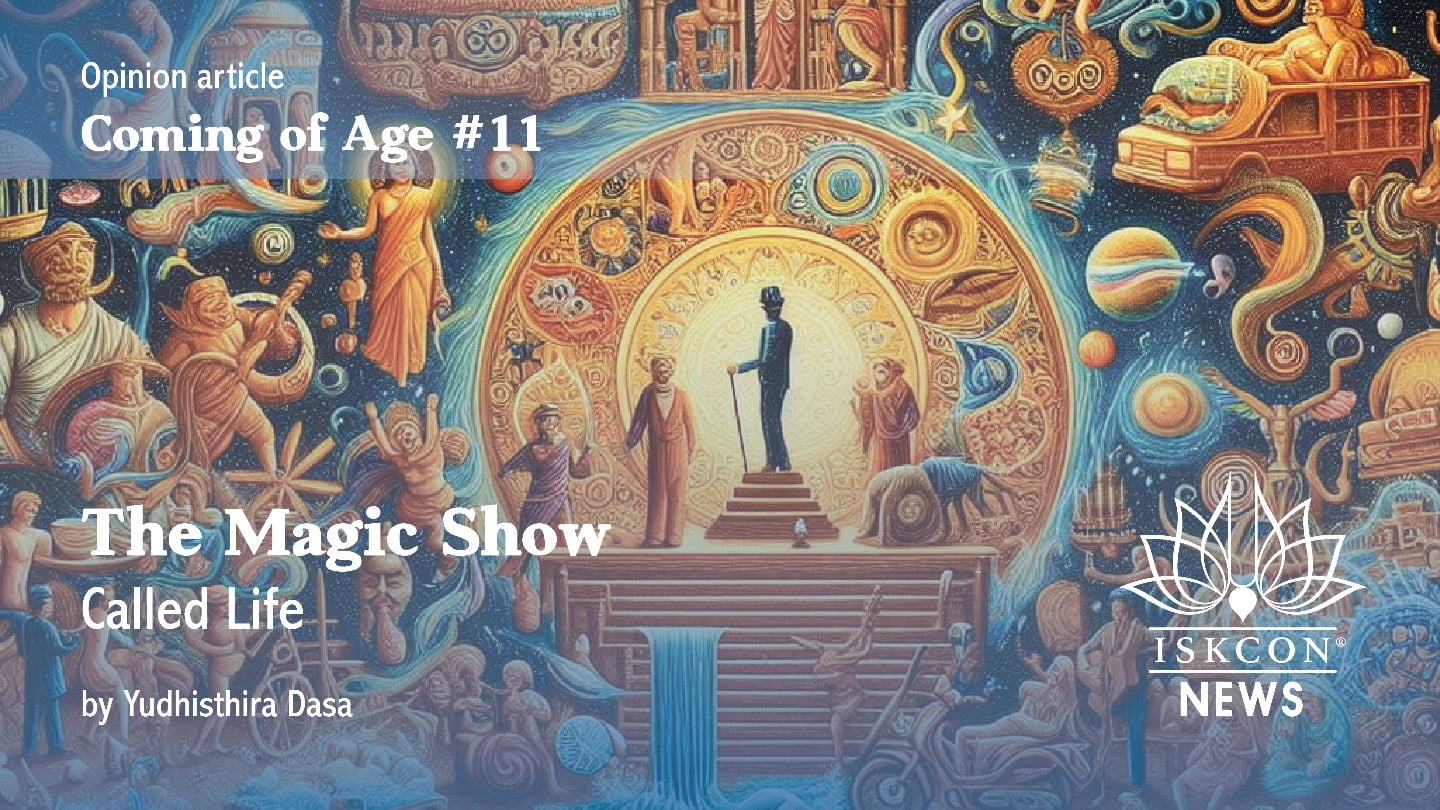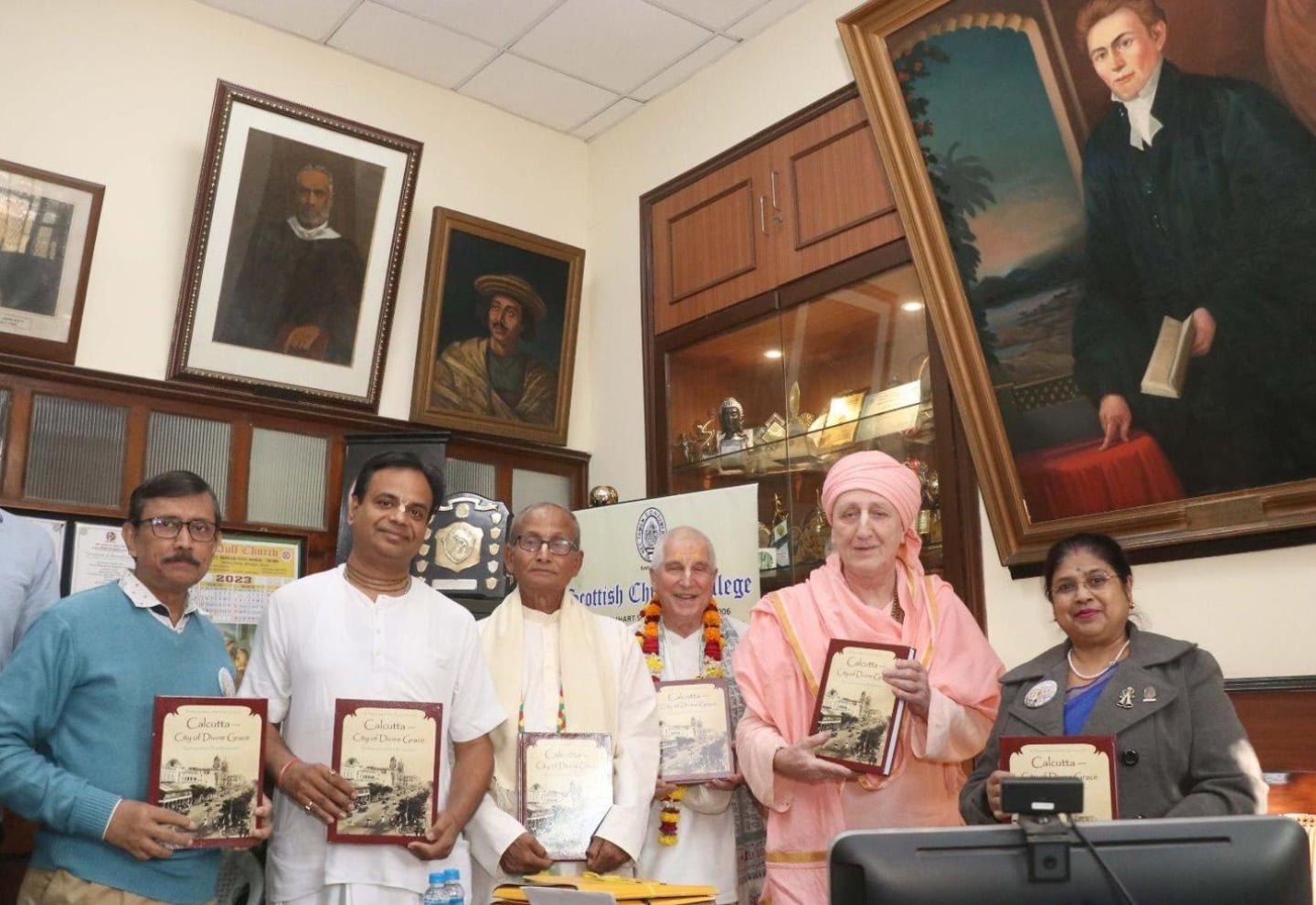Leading Questions
By Krishna Dharma Das | Jun 11, 2022

After a series of minor scandals, Britain’s dauntless Prime Minister Boris Johnson has just survived a vote of confidence among his colleagues in Parliament. While he has hardly emerged unscathed, with around 40% of MP’s declaring their lack of confidence in his leadership, with his integrity still being questioned in many quarters, he will at least remain in the top job for the time being. Of course, he insists he has done nothing wrong beyond the occasional oversight, but the shadow remains, and it does little to improve public cynicism toward our leaders.
In the ancient Vedic scriptures, we hear about the exemplary rule of Lord Rama, the famed ‘Rama-Rajya, which is still widely revered even today in India, but things have moved on since then. These days no one expects leaders to be paragons of perfect virtue like Lord Rama; after all, the behavior of society, in general, could hardly be cited as an example of this, and democratically elected leaders tend to reflect prevailing values. If, say, drinking to excess and a certain amount of philandering are generally acceptable, then we will likely tolerate that in our leaders, as we have seen. We may even turn a blind eye if it emerges that a politician partook of the odd forbidden substance in the recklessness of youth. But there is still a line they cannot cross, the murky line of corruption and dishonesty. President Nixon marched boldly over that line with disastrous consequences. And numerous others less prominent have met with similar fates. We don’t want to be cheated and misled and will soon drag down those caught in the act.
That has to be a good thing. We must expect at least some moral standards in our leaders. After all, leading countries is a weighty task, and one would hope those entrusted with it have some qualifications for the job; but is this always the case? Charles De Gaulle wisely said, “Politics is too serious a business to be left to politicians.” These days it seems the primary skill of politicians lies in convincing others of their merits and of the complete absence of any virtues in the opposing parties. Usually, if their arguments and manifesto sound attractive enough, filled with the promise of all prosperity, we will give them our vote. It is indeed unfortunate if our selection is later impugned in some way and found to be sadly lacking in even basic morality.
Perhaps then, rather than being swayed by grandiose promises, we should consider the moral case when selecting leaders. This is what Vedic wisdom recommends. Srila Prabhupada writes, “…public leaders must be tested crucially by their character and qualification.” According to Vedic standards, there are four principal merits we should look for in leaders, namely austerity, cleanliness, mercy, and truth. These are the four “legs” of religion or virtue, and they are destroyed by four vices respectively: intoxication, illicit sex, animal killing, and gambling.
Using these criteria to select our leaders would probably eliminate many of today’s candidates. Nevertheless, they are surely desirable qualifications, and we do look for them to some degree. We want leaders to be somewhat austere in that they should be moderate and at least not take pecuniary advantage of their situation. Cleanliness means within and without, being gentle and cultured, and mercy or compassion is also something we would hope to see in leaders. And as for truth, we have already mentioned that; certainly, this has to be there.
Yet even if we find such highly moral persons, will they have the skills to run a country? Perhaps we need to consider the whole question of democracy more fundamentally. Vedic society did not give a vote to all and sundry and thus leave the critical function of leadership at the mercy of many who may themselves have no training or knowledge in the matter. Winston Churchill said that the best argument against democracy is a five-minute conversation with the average voter. Perhaps a bit harsh, but we need to know what to look for in a qualified leader. Only those who were learned and, more critically, spiritually pure in heart were entrusted with such decisions. Society would also nurture a class of men trained from birth in the science of statecraft and leadership, along with the necessary accompanying morality. And of course, they would know life’s spiritual goal and lead the people accordingly.
We are far from that nowadays. Pure-hearted persons tend to be thin on the ground, and the training for leaders often seems to be a process of trial and error once they have been thrust into office. Maybe though, we should give it some thought. We could perhaps start by looking more carefully at the moral character of our would-be leaders rather than just the often-empty promises of a (cruelly slaughtered) “chicken in every pot”.












